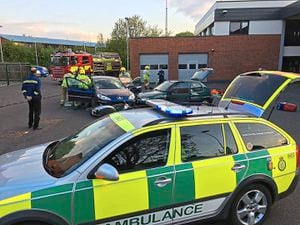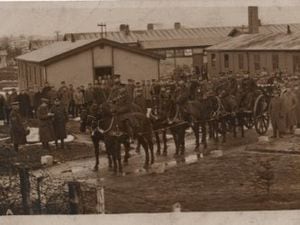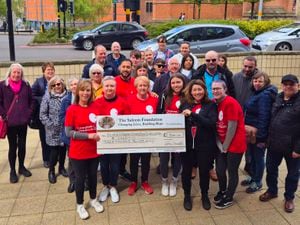Health Secretary urged to intervene in Community First Responder row
The Health Secretary has been urged to intervene after Community First Responders in Staffordshire were barred from using blue lights and administering drugs.

The changes were brought in by bosses at West Midlands Ambulance Service (WMAS) and came into effect last week, with enhanced CFRs ordered to remove blue lights and all drugs from their vehicles.
WMAS insist the measures will improve safety and lead to an increase in the number of volunteers, but the move has been widely opposed by first responders, who say it could cost lives in rural communities.
Conservative MPs in Staffordshire – including Michael Fabricant, Sir Bill Cash and Theo Clarke – have also raised concerns.
Stafford MP Ms Clarke has written to Health Secretary Matt Hancock regarding the issue.
She hailed the "amazing" work of CFRs and said she was opposed to WMAS's changes, particularly in light of the coronavirus crisis.
"In these unprecedented times, it is paramount they [CFRs] are able to continue to serve our communities as well as they do," Ms Clarke said.
"I will continue to lobby the Health Secretary on behalf of the Community First Responders, as they provide extra support on an already strained health service."
First responders were informed of the changes in a letter on April 1 from Nick Henry, an assistant chief ambulance officer with responsibility for CFRs.
He said the changes meant that all schemes were now operating in the same way for the first time regionally. "The consistent approach has seen the use of Enhanced CFR drugs and equipment cease from midnight," he said, adding that scheme managers would collect "all items in from the relevant Staffordshire schemes today". "
From today, CFR’s MUST NOT use blue lights for any reason, when booked on duty or responding for the Trust and there is a requirement for all blue lights to be removed from scheme cars as we move forward," the letter said.
The issue was raised by Lord Crisp in a question to the Department for Health and Social Care on March 31. He asked if WMAS had considered upgrading all CFRs to 'enhanced' status before it was decided to "downgrade" the role.
In response Lord Bethell said: "The Government are content with the approach WMAS are taking regarding CFRs and have no concerns regarding their future plans."
WMAS says it plans to use CFRs to target the most seriously ill patients. The revamped scheme will include a formal qualification.
The role of enhanced CFRs was developed under the old Staffordshire Ambulance Service. They were allowed to carry drugs including salbutamol and adrenaline, and use blue lights when attending emergencies.
This enabled them to arrive on scene more quickly and administer vital treatment before the arrival of an ambulance.
WMAS spokesman Murray MacGregor, said: "Last week, the Trust Board reviewed the decision to remove blue lights from the Staffordshire CFRs and restrict the drugs that some are able to use.
"It noted the content of the representations that had been received from individuals and organisations but concluded unanimously that the change remains the best way to increase CFR numbers, protect patients and save more lives.
"Tens of thousands of CFRs around our country do not have access to blue lights, operate in towns, cities, remote and rural areas and this has not stopped them from attending incidents in a timely manner and saving lives.
"We are therefore in no doubt that the CFRs in Staffordshire will continue to provide a lifesaving service to their local communities."





